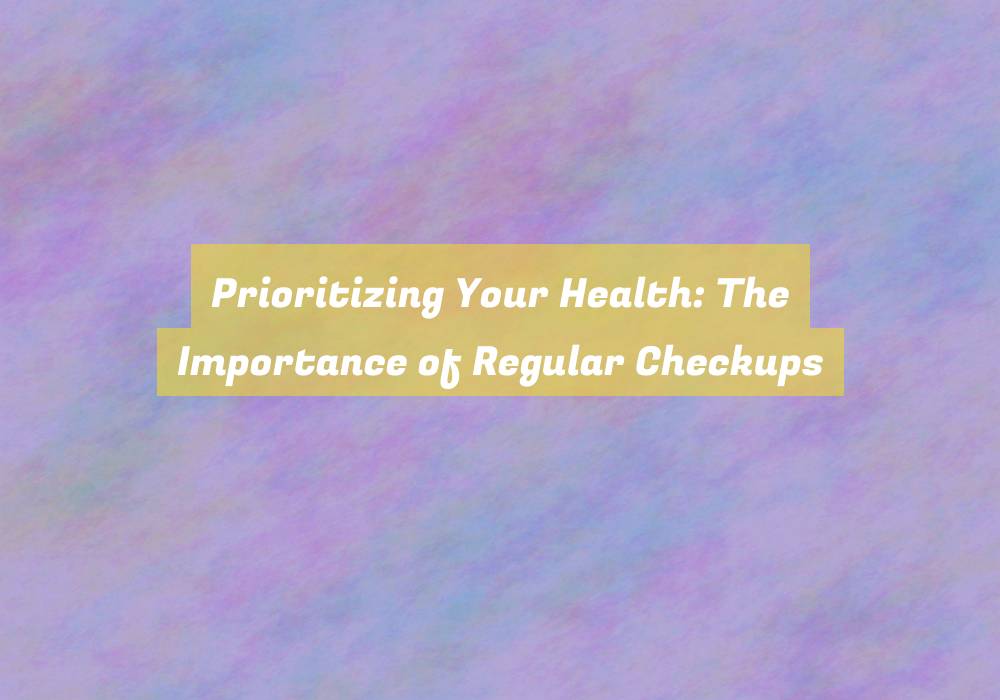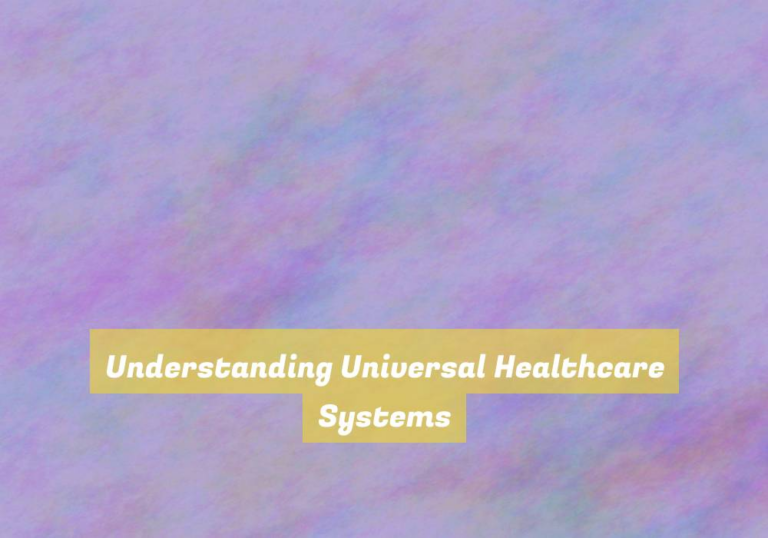Prioritizing Your Health: The Importance of Regular Checkups
Your body is like a well-oiled machine, and just like any machine, it requires regular maintenance to function at its best. When was the last time you gave your body a thorough checkup? Regular checkups are more than just a routine doctorG??s appointment; they are a vital part of maintaining your overall health and well-being.
From catching potential health issues early to receiving valuable guidance on preventative care, the benefits of regular checkups are undeniable. But how exactly do these appointments contribute to your long-term health, and what should you expect during them?
LetG??s explore the importance of prioritizing your health through regular checkups and how they can play a crucial role in your overall wellness.
The Benefits of Regular Checkups
Regular health checkups provide an opportunity to catch potential health issues early and take proactive steps to address them. When you schedule regular checkups, you give yourself the chance to detect any health concerns before they escalate into more serious problems. By staying up to date with these appointments, you can work with your healthcare provider to monitor your overall health and identify any risk factors that may predispose you to certain conditions. This proactive approach allows for timely interventions, potentially preventing the development of chronic illnesses or complications.
Additionally, regular health checkups enable you to establish a baseline for your health, making it easier to track any changes over time. This can be particularly valuable in identifying subtle shifts in your health that may otherwise go unnoticed. By addressing any abnormalities early on, you can often avoid more invasive treatments or prolonged recovery periods.
Key Components of Health Assessments
When it comes to monitoring your health, one of the key components of health assessments is the thorough evaluation of various physiological indicators and risk factors. These assessments typically involve measuring vital signs such as blood pressure, heart rate, and body temperature. Additionally, assessing cholesterol levels, blood sugar levels, and body mass index (BMI) provides valuable insights into your overall health. Evaluating your lifestyle factors, including diet, exercise habits, and stress levels, is also crucial in understanding your current state of health.
Furthermore, health assessments often identify risk factors such as smoking, excessive alcohol consumption, and genetic predispositions to certain diseases. Screening for common health issues like diabetes, high blood pressure, and certain cancers is an integral part of these assessments. By proactively identifying potential health concerns through these assessments, you can work with healthcare professionals to develop personalized strategies for prevention and early intervention.
In essence, health assessments play a pivotal role in maintaining your well-being by providing a comprehensive overview of your current health status and identifying areas that may require attention or modification.
Understanding Preventative Care
Understanding the importance of preventative care is crucial for maintaining your overall health and well-being. Preventative care focuses on preventing illnesses or conditions before they develop or worsen. It involves regular checkups, screenings, and immunizations to keep you healthy and detect any potential health issues early on. By staying proactive with preventative care, you can often avoid more serious health problems down the line.
Regular checkups are a cornerstone of preventative care. These appointments allow your healthcare provider to assess your current health status, identify any risk factors, and provide guidance on healthy lifestyle choices. Screenings, such as blood pressure checks, cholesterol tests, and cancer screenings, are essential components of preventative care. They can help detect health issues at an early stage when theyG??re most treatable.
Immunizations are another crucial aspect of preventative care. Vaccines protect you from serious diseases and play a vital role in maintaining overall community health. By staying up to date with recommended vaccinations, you not only protect yourself but also contribute to the prevention of infectious diseases within your community.
Understanding and prioritizing preventative care can significantly impact your long-term health and well-being.
Incorporating Checkups Into Your Routine
To ensure you prioritize your health, consider scheduling regular checkups as part of your routine. Incorporating checkups into your schedule is crucial for maintaining your well-being. Start by making appointments well in advance to secure a convenient time that fits into your daily life. Consider booking your checkups for the same time each year, such as during your birthday month, to create a routine. This consistency will help you remember to schedule your appointments and make them a priority.
Additionally, try to find a healthcare provider whose office is conveniently located near your home or workplace. This will make it easier for you to attend your appointments without disrupting your daily routine too much. Furthermore, consider integrating your checkups with other regular activities, such as scheduling them on the same day as your gym sessions or grocery shopping trips. By doing so, you can efficiently manage your time and ensure that your health remains a top priority.
Conclusion
Now that you understand the importance of regular checkups, make it a priority to schedule your next appointment.
Your health is too important to ignore, so take the time to invest in regular preventative care.
By staying on top of your health assessments and incorporating checkups into your routine, you can catch potential issues early and take control of your well-being.
DonG??t wait G?? take charge of your health today.






